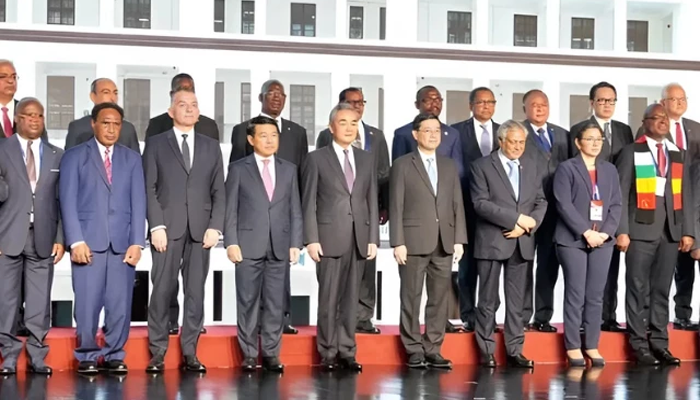ISLAMABAD: The Jamiat Ulema-e-Islam-Fazl (JUI-F) has announced its decision to challenge the recently enacted Child Marriage Restraint Bill, which criminalizes marriages involving individuals under the age of 18. The party denounced the legislation as “un-Islamic” and questioned the government’s intentions behind its swift approval.
In a statement released to the media, a spokesperson for the JUI-F said the bill contradicts Islamic teachings and aligns with the Islamic Ideological Council's earlier position that declared such legislation incompatible with Sharia principles. The party expressed strong opposition to the law, accusing the government of acting without proper religious consultation.
“We strongly condemn the manner in which this law has been pushed through,” the JUI-F spokesperson said. “It goes against our religious and cultural values and was enacted in undue haste, which only increases suspicion regarding the motivations of the ruling authorities.”
The criticism came just hours after President Asif Ali Zardari signed the bill into law. The legislation had earlier passed both houses of Parliament — the National Assembly and the Senate — with notable support from lawmakers advocating child protection and women’s rights. The bill was introduced by Sharmila Farooqi in the National Assembly and by Sherry Rehman in the Senate.
The new law imposes stringent penalties aimed at eradicating child marriages. Under the legislation, officiants who solemnize marriages involving anyone under 18 can be jailed for up to one year and fined PKR 100,000. Adult men marrying girls under 18 may face up to three years of rigorous imprisonment.
Forcing minors into marriage is now considered a serious offense, punishable by up to seven years in prison and a fine of PKR 1 million. Facilitating or trafficking children for marriage is now a non-bailable offense, carrying similar jail terms and penalties. Anyone found abetting such acts can face up to three years of imprisonment and fines as well.
Human rights activists have lauded the passage of the bill as a major step forward in safeguarding children's rights and ensuring that minors are not subjected to harmful traditional practices. Supporters argue that raising the legal marriage age to 18 is consistent with global standards and helps protect young girls from abuse, forced pregnancies, and health complications.
However, religious groups such as JUI-F view the law as a threat to religious autonomy. The party has pledged to take the matter to court and mobilize public support to oppose the law’s implementation.
With the law now in effect, the federal government has signaled its commitment to strict enforcement. However, a legal battle led by JUI-F and resistance from conservative circles may test the government's resolve in pushing forward progressive reforms in the face of religious opposition.









